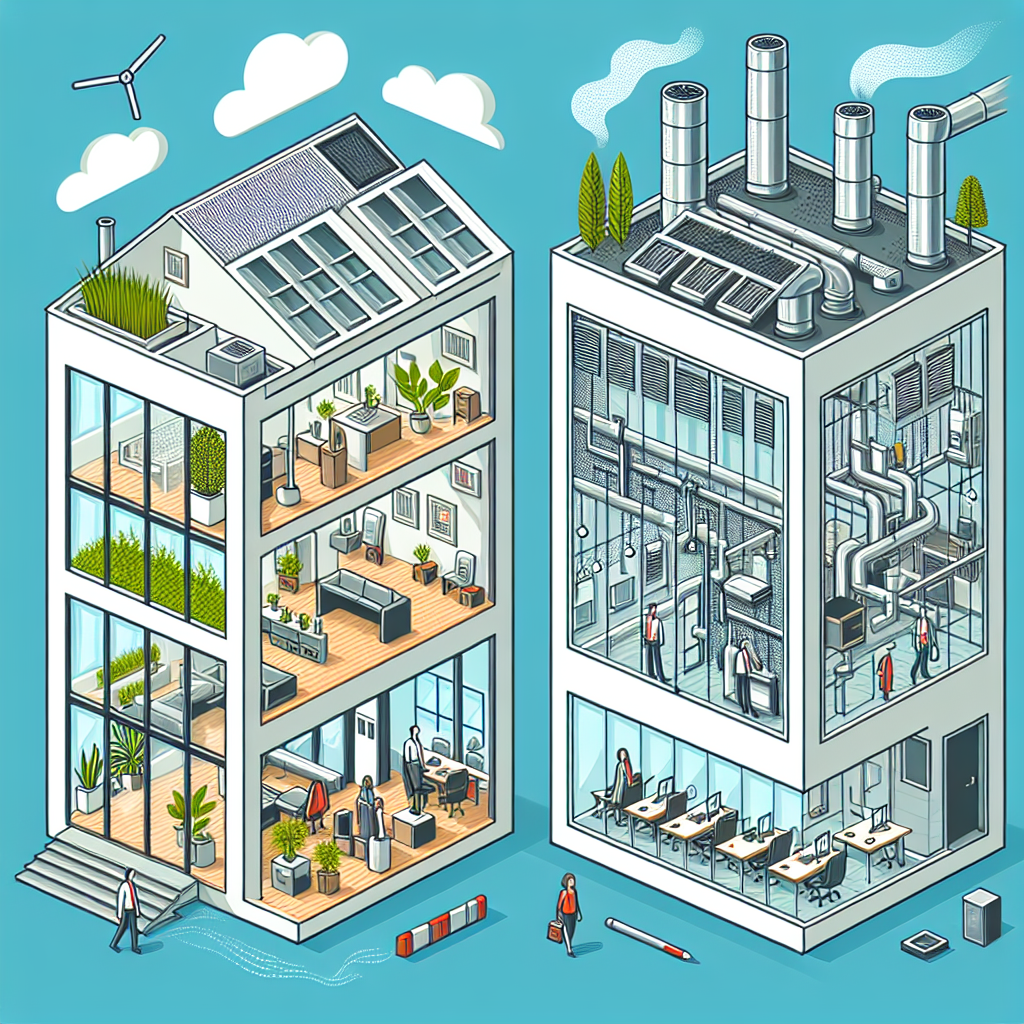Your cart is currently empty!
The Benefits of Adequate Ventilation in Homes and Buildings

Adequate ventilation in homes and buildings is crucial for maintaining a healthy and comfortable indoor environment. Proper ventilation helps to remove indoor air pollutants, regulate humidity levels, and prevent the buildup of harmful gases. In addition to improving indoor air quality, adequate ventilation can also help to lower energy costs and increase the overall efficiency of heating and cooling systems.
One of the main benefits of proper ventilation is the removal of indoor air pollutants. Indoor air can contain a variety of pollutants such as dust, pollen, pet dander, and volatile organic compounds (VOCs) from cleaning products, paints, and furniture. These pollutants can cause a range of health problems including respiratory issues, allergies, and even more serious conditions such as asthma and lung cancer. Adequate ventilation helps to remove these pollutants from the indoor environment, improving overall air quality and reducing the risk of health problems.
Proper ventilation also helps to regulate humidity levels in homes and buildings. High humidity levels can lead to mold growth, which can cause respiratory issues and exacerbate allergies. On the other hand, low humidity levels can cause dry skin, throat irritation, and an increased risk of respiratory infections. Adequate ventilation helps to maintain a healthy balance of humidity in indoor spaces, reducing the risk of mold growth and ensuring a comfortable environment for occupants.
In addition to improving indoor air quality and regulating humidity levels, proper ventilation can also help to prevent the buildup of harmful gases such as carbon monoxide. Carbon monoxide is a colorless, odorless gas that is produced by the incomplete combustion of fuels such as gas, oil, and wood. Exposure to high levels of carbon monoxide can be deadly, causing symptoms such as headaches, dizziness, and nausea. Adequate ventilation helps to ensure that any carbon monoxide produced in the indoor environment is properly vented to the outside, reducing the risk of exposure and keeping occupants safe.
Another benefit of adequate ventilation is the potential for energy savings. Proper ventilation can help to reduce the need for mechanical heating and cooling systems, as natural ventilation can help to regulate indoor temperatures and improve overall comfort. By reducing the reliance on heating and cooling systems, homeowners and building owners can lower energy costs and decrease their carbon footprint. Additionally, proper ventilation can help to extend the life of HVAC systems by reducing the strain on the equipment and improving overall efficiency.
In conclusion, adequate ventilation is essential for maintaining a healthy and comfortable indoor environment in homes and buildings. Proper ventilation helps to remove indoor air pollutants, regulate humidity levels, prevent the buildup of harmful gases, and lower energy costs. By investing in proper ventilation systems, homeowners and building owners can improve indoor air quality, reduce the risk of health problems, and create a more comfortable and energy-efficient living or working space.

Leave a Reply